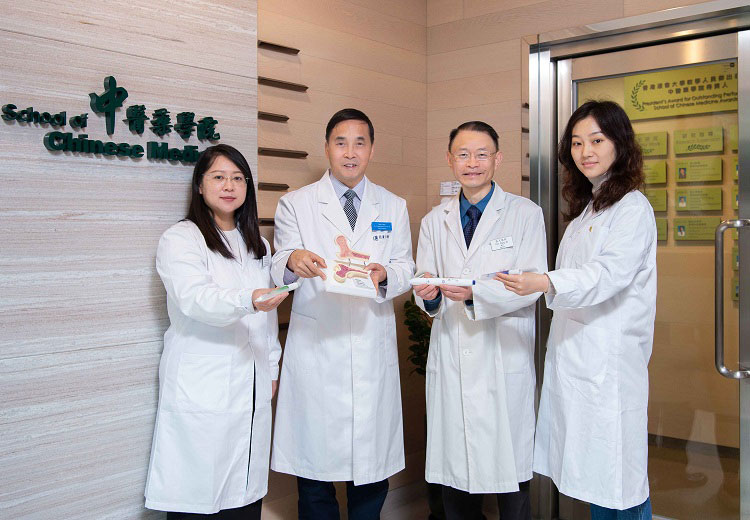The search for next-generation drugs through aptamer-based medicine

A groundbreaking osteogenic drug developed at Hong Kong Baptist University treats bone conditions without risk to the heart, paving the way for a range of new treatments for chronic bone diseases
The search for new treatments for osteoporosis intensified after the US Food and Drug Administration (FDA) placed a black box warning on a therapeutic antibody treatment that targets sclerostin to promote bone formation in patients. Sclerostin is a protein that inhibits bone formation, and such treatments regulate the dynamic balance between bone formation and resorption in the body. But sclerostin also protects the cardiovascular system, and inhibiting it has consequences. The FDA warned against use in patients with cardiovascular disease and advised restricting use for other patients to a maximum of 12 months – a severe drawback for a chronic condition.
Yuanyuan Yu, assistant professor in the teaching and research division of the School of Chinese Medicine at Hong Kong Baptist University, is a specialist in aptamer-based translational medicine and drug discovery. Yu discovered a workaround to the FDA’s warning: aptamer Apc001, a drug that targets only the bone-inhibiting functional mechanism of the protein, leaving the cardiovascular system unaffected. The potential was huge. Yu applied it to other disease models and is now preparing for clinical trials of the drug to treat the hereditary bone disease osteogenesis imperfecta – also known as brittle bone disease.
“At the beginning, we just wanted to develop this drug for osteoporosis, but later we found the potency for the bone formation in the osteogenesis imperfecta is quite promising, so we did the same thing in this disease model,” Yu says. This next-gen sclerostin inhibitor drug targets loop 3 of the sclerostin molecule and is an example of how Yu’s aptamer-based research activity has expanded science’s understanding of how diseases function in the body, and the development of new drugs to tackle them.
Aptamer Apc001 is being co-developed with pharmaceutical start-up Aptacure Therapeutics, with funding support from the Incu-Bio programme at Hong Kong Science and Technology Parks. Subsequently, the Fortune 500-listed Shanghai Pharmaceuticals has registered an interest in investing. The task now is to scale up operations to synthesise the drug for clinical trials and to apply for Investigational New Drug (IND) status from the FDA. “We are also doing some toxicity evaluations because we need to provide the toxicity and pilot stage protocol to apply for the IND,” Yu says.
Yu’s work heralds a new era for cardiovascular-safe sclerostin inhibitors. It is also a landmark for Chinese medicine, with aptamer Apc001 the first aptamer drug developed from Hong Kong and mainland China to receive orphan drug and paediatric rare disease drug designation from the FDA.
The social impact of the discovery is significant. If successfully brought to market, aptamer Apc001 could transform the lives of those with osteogenesis imperfecta, with the potential to have a wider clinical significance. Tests are under way to learn whether the drug could inhibit tumour progression in breast cancer patients.
“We will expand it to osteoporosis too,” Yu says. “We are doing other models, like a microgravity bone loss model. Astronauts in space flight lose a lot of bone, and if we can use this drug to treat this bone loss, [we can] reverse this bone loss during space flight.”
Find out more about the School of Chinese Medicine at HKBU.